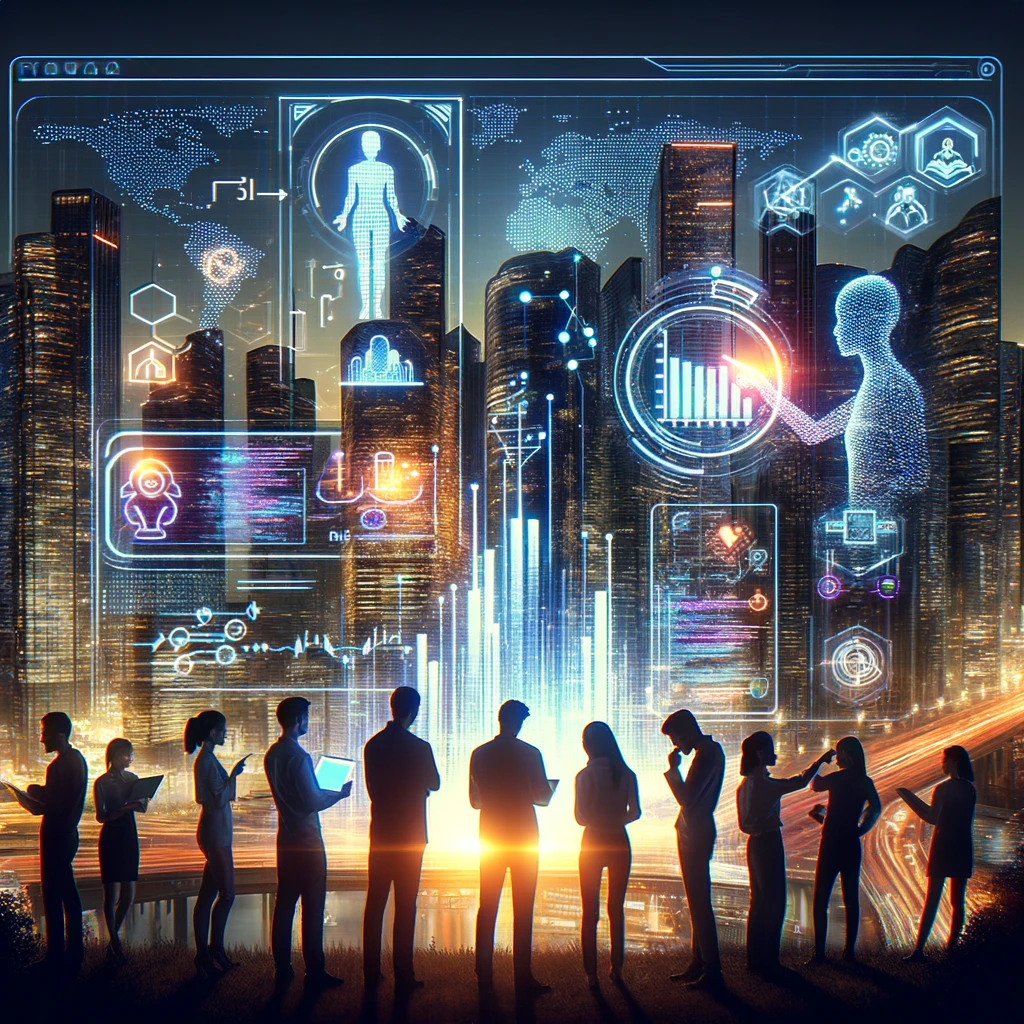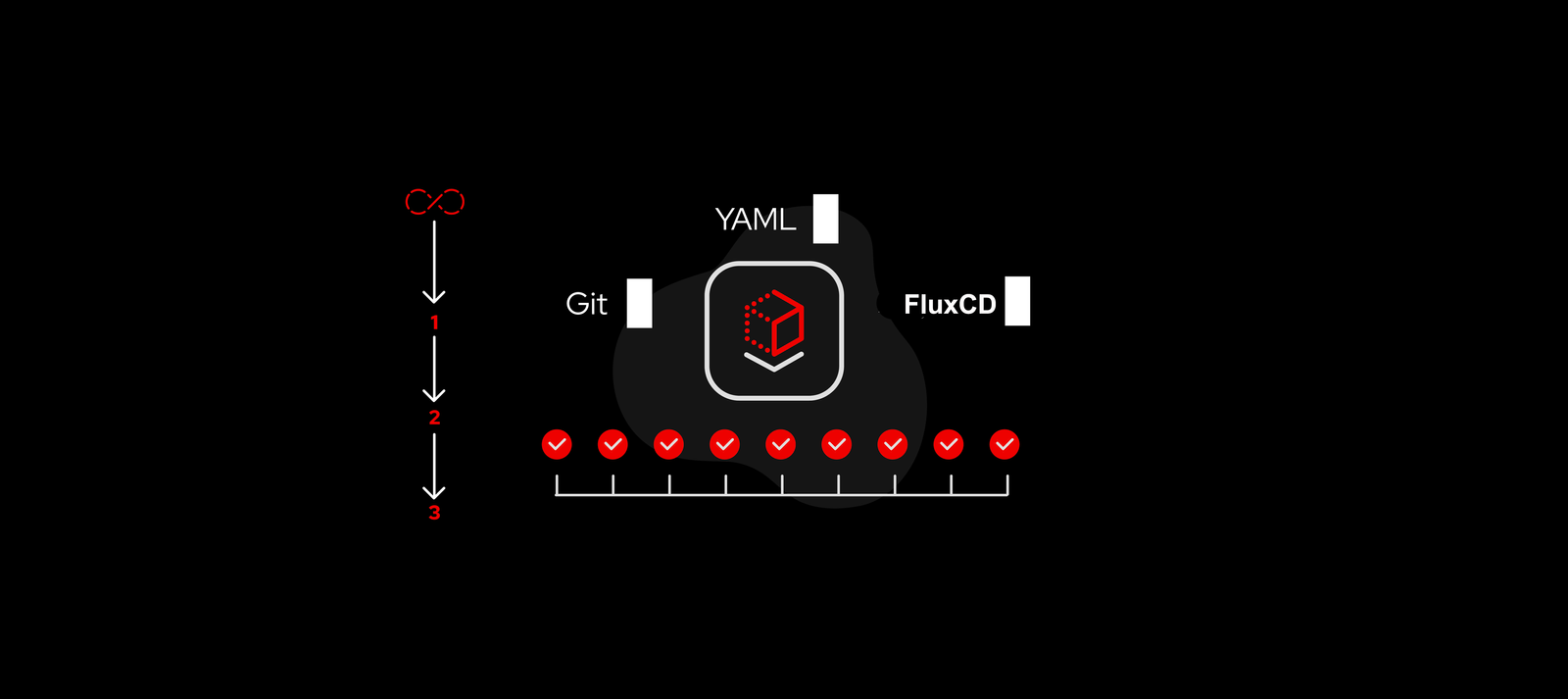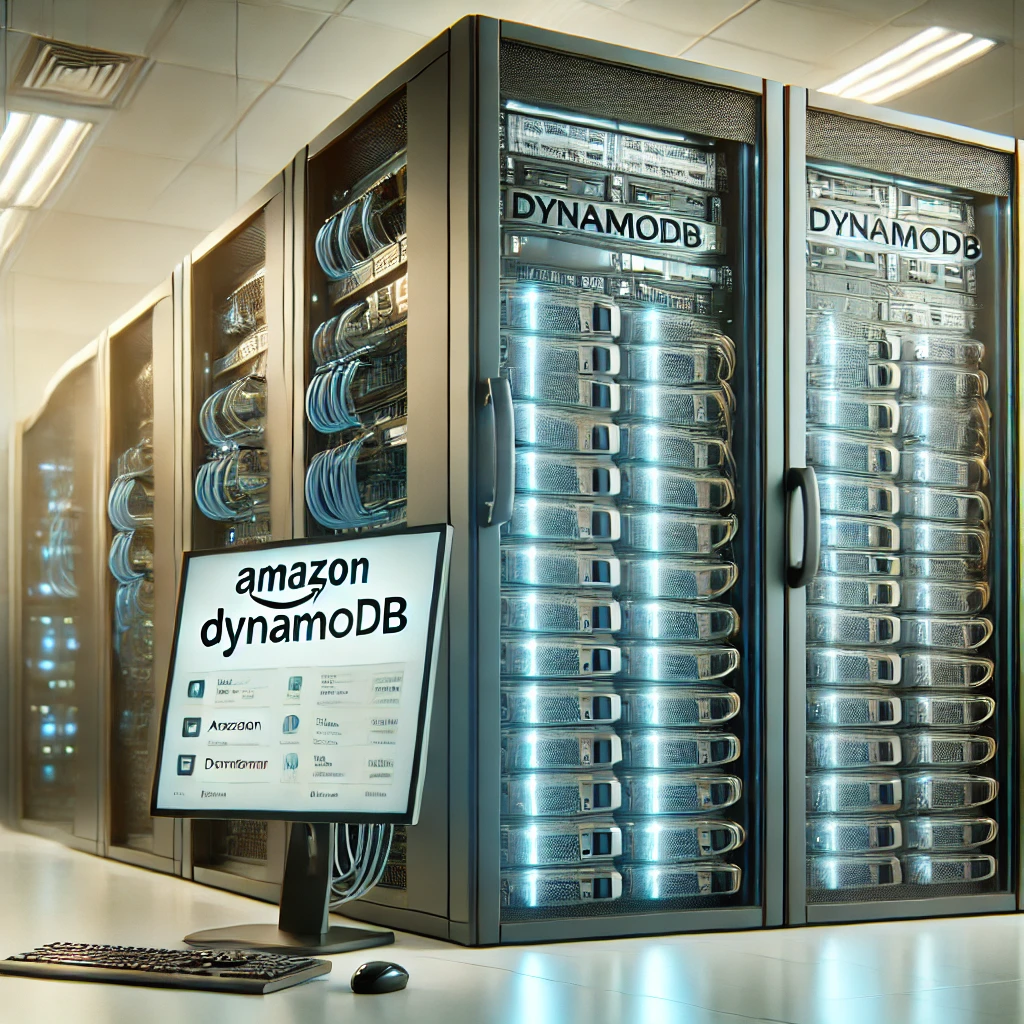How AI is Changing the Custom Software Development in 2024
The influence of AI has been steadily growing across various sectors, revolutionizing the way we work, live, and interact with technology. The integration of AI technologies, such as machine learning, natural language processing, and predictive analytics, is not only speeding up the development process but also improving the quality and reliability of software products.
We will delve into how AI-driven tools and technologies are reshaping software development, enabling developers to create more sophisticated, customized solutions faster and more efficiently than ever before.
AI Custom Development Market Overview
As we move into 2024, the impact of AI on custom software development continues to expand, marking a significant transformation in how software solutions are conceived, developed, and deployed. According to a recent report, the global AI custom development market is expected to grow significantly, with forecasts suggesting a compound annual growth rate (CAGR) of over 20% by 2027. This growth is indicative of the increasing adoption of AI technologies in software development processes.
Why do startups need a custom AI solution?
Startups, characterized by their innovative spirit and the need to adapt to changing market dynamics, are increasingly recognizing the importance of custom AI solutions in driving their success. Custom AI solutions offer startups a competitive edge, enabling them to harness the power of artificial intelligence tailored specifically to their unique business needs and objectives. Here’s why custom AI solutions are becoming indispensable for startups:
Tailored Problem-Solving
Startups often face unique challenges that cannot be adequately addressed by off-the-shelf AI solutions. Custom AI allows for the development of algorithms and models that are precisely aligned with the startup’s specific problem domain, whether it’s optimizing supply chains, personalizing customer experiences, or automating internal processes. This tailored approach ensures more effective and efficient problem-solving, directly impacting the startup’s ability to innovate and scale.
Competitive Advantage
In a crowded marketplace, differentiation is key to a startup’s survival and growth. Custom AI solutions provide a means to stand out by enabling innovative services, products, or features that competitors do not offer. By leveraging AI to deliver unique value propositions, startups can attract more customers, create new markets, or redefine existing ones.
Scalability and Flexibility
Startups need technologies that can scale with their growth and adapt to evolving business models. Custom AI systems are built, allowing the seamless integration of new data sources, the adaptation to changing user behaviors, and the expansion of functionalities without significant overhauls. This flexibility is crucial for startups as they pivot and scale their operations.
Cost Efficiency in the Long Run
While the initial investment in custom AI development might be higher than adopting a generic solution, the long-term benefits often outweigh the costs. Custom AI solutions are more efficient and effective at solving specific problems, reducing wasteful spending on features that are not needed. Additionally, by automating processes and improving decision-making, startups can significantly reduce operational costs and increase ROI over time.
Data Privacy and Security
Startups, especially those handling sensitive user data, need to prioritize privacy and security. Custom AI solutions can be designed with compliance with data protection regulations and robust security measures from the ground up. This bespoke approach ensures that the startup’s AI systems are not only effective but also secure and trustworthy, which is crucial for maintaining user trust and meeting regulatory requirements.
Enhanced Customer Experiences
Custom AI solutions enable startups to analyze customer data deeply and predictively, offering personalized experiences that generic solutions cannot match. From personalized recommendations to dynamic customer support, AI can help startups understand and engage their customers in more meaningful ways, fostering loyalty and driving growth.
What are the primary domains for custom AI development?
Computer Vision Solutions
Through image recognition, organizations can tailor solutions for diverse applications like automated visual inspections to ensure quality in manufacturing settings. This domain is particularly conducive to customization due to the variability in quality assurance processes across companies.
Chatbots
Chatbots employing Natural Language Processing (NLP) technologies are crucial for enhancing customer service and various other business operations. AI chatbots offer a multitude of benefits, extending beyond customer service and business operations. Here are some additional advantages:
- 24/7 Availability: Unlike human agents, chatbots can operate around the clock without breaks or shifts, providing constant support and assistance to users regardless of time zones or business hours.
- Scalability: They can work with a large volume of data simultaneously, making them highly scalable to accommodate surges in user interactions without requiring additional manpower.
- Consistency: Chatbots provide consistent responses to frequently asked questions and standard procedures, ensuring uniformity in customer service interactions and reducing the risk of human errors or inconsistencies.
- Data Insights: Chatbots collect valuable data on user interactions, preferences, and behavior, providing businesses with insights to improve their products, services, and marketing strategies through data-driven decision-making.
- Personalization: Advanced AI algorithms enable chatbots to analyze user data and personalize interactions based on individual preferences, purchase history, and browsing patterns, enhancing the overall customer experience.
Other Machine Learning Solutions
Businesses can enlist developers to create customized machine learning solutions such as customer analytics, predictive maintenance, and anomaly/fraud detection. While out-of-the-box solutions exist in these areas, companies often opt for custom solutions when pre-packaged options fail to meet performance standards tailored to the company’s specific challenges.
How does the AI custom development differ from traditional ones?
AI development and traditional custom development differ significantly in terms of their methodologies, goals, and technologies used. Here’s a breakdown of the key differences between the two:
- Methodology:
AI development focuses on creating systems that can learn from data, make predictions, and adapt to new information without explicit programming. It often involves machine learning algorithms, which improve their performance over time through exposure to more data.
Traditional custom development typically follows a predetermined set of requirements and involves coding specific functionalities based on those requirements. The development process is often more linear and less adaptive compared to AI development. - Goal:
The primary goal of AI development is to create intelligent systems that can perform tasks traditionally requiring human intelligence, such as understanding natural language, recognizing patterns in data, making predictions, and decision-making.
The goal of traditional custom development is to build software applications or systems that meet specific business requirements, automate processes, or provide solutions to particular problems. The focus is on delivering functionality as per the client’s specifications.
- Technologies:
AI development relies on technologies such as machine learning, deep learning, natural language processing (NLP), computer vision, and reinforcement learning. These technologies enable systems to analyze data, extract insights, and make intelligent decisions.
Traditional custom development may involve a wide range of technologies depending on the requirements of the project, including programming languages, frameworks, databases, and APIs. The choice of technologies is typically based on factors such as performance, scalability, and compatibility with existing systems.
- Data Dependency:
AI development is heavily dependent on data. Machine learning algorithms require large volumes of high-quality data for training, validation, and testing. The quality and quantity of data directly impact the performance and accuracy of AI models.
While data may still play a role in traditional custom development, it is typically not as central to the process as in AI development. Custom development projects may involve data integration, manipulation, and storage, but the focus is often on building functionality rather than analyzing data for insights.
- Flexibility and Adaptability:
AI systems are designed to be flexible and adaptable, capable of learning from new data and adjusting their behavior accordingly. This enables AI systems to improve over time and handle evolving scenarios without requiring significant manual intervention.
Traditional custom development projects may be less flexible and adaptable compared to AI systems. Changes or updates to the software typically require manual programming and may not be as dynamic or automated as in AI systems.
AI Software Development Cost
The cost of integrating AI into custom software development can vary significantly depending on a few factors. Here are some of them which influence the overall cost:
- Scope and Complexity: The complexity of the AI functionality required for the custom software plays a significant role in determining costs. More advanced AI capabilities, such as NLP, computer vision, or predictive analytics, typically entail higher development costs.
- Data Availability and Quality: Access to high-quality training data is crucial for developing effective AI models. The cost may increase if additional resources are needed to collect, clean, or label data, especially if the data is scarce or of low quality.
- Development Timeframe: Urgency can impact costs, as accelerated development may require additional resources or overtime hours from developers, potentially leading to higher costs.
- Infrastructure and Tools: The choice of AI development tools, frameworks, and cloud services can affect costs. Licensing fees for proprietary AI platforms or the use of cloud computing resources for training and deployment may contribute to the overall expenses.
- Maintenance and Support: Ongoing maintenance, updates, and technical support are necessary to keep AI-powered software functioning effectively over time. Factoring in these recurring costs is important for long-term sustainability.
- Regulatory Compliance: Compliance with data privacy regulations and industry standards may necessitate additional measures, such as implementing robust security protocols or conducting audits, which can add to the development cost.
Average Cost
The average cost for AI development can vary significantly depending on various factors such as the complexity of the project, the expertise required, the location of the development team, and the specific technologies involved. However, to provide a rough estimate, here are some general guidelines:
Simple AI Solutions
Basic AI solutions with limited functionality, such as simple chatbots or basic recommendation systems, may cost anywhere from $10,000 to $50,000 USD. These projects typically involve minimal customization and utilize existing AI frameworks and tools.
Moderate Complexity
AI projects of moderate complexity, including more advanced chatbots with natural language processing capabilities, image recognition systems, or predictive analytics models, may range from $50,000 to $200,000 USD. These projects often require custom development and integration with existing systems.
Highly Complex Solutions
Projects involving highly advanced AI technologies such as deep learning algorithms, complex computer vision systems, or large-scale data analytics platforms can cost upwards of $200,000 USD or more. These projects may require extensive research and development efforts, as well as specialized expertise in AI and machine learning.
How to Choose Custom AI Development Partners?
Choosing the right partner for custom AI development is crucial for the success of your project. Here are some considerations to help you make an informed decision:
Evaluate Expertise and Experience
Look for AI development partners with a proven track record of success in building similar solutions. Assess their expertise in relevant technologies, such as machine learning, natural language processing, or computer vision.
When considering outsourcing, Eastern European countries are often preferred for their skilled workforce, competitive pricing, and cultural compatibility with Western businesses. Eastern European countries like Ukraine have emerged as prominent hubs for IT outsourcing due to several factors: highly skilled technical talent and cost-effectiveness. Eastern Europe boasts a large pool of talented software developers, including specialists in AI and machine learning. Labor costs in Eastern Europe are generally lower than in Western countries, making it an attractive option for outsourcing without compromising quality.
Cultural proximity
Eastern European countries often share cultural similarities and time zones with Western Europe and North America, facilitating smoother communication and collaboration.
Assess Portfolio and References
Review the portfolio of potential partners to gauge the quality and diversity of their previous projects. Request client references and testimonials to gain insights into their reputation and client satisfaction levels.
Communication and Collaboration
Effective communication is essential for successful collaboration. Choose a partner with clear and transparent communication channels and a proactive approach to project management. Consider factors such as language proficiency, responsiveness, and cultural compatibility.
Scalability and Flexibility
Evaluate the scalability and flexibility of the AI development partner to accommodate changing project requirements and timelines. Choose a partner capable of adapting to evolving needs and scaling up resources as necessary.
Evaluate Technical Capabilities
Assess the technical capabilities and infrastructure of the AI development partner, including their expertise in relevant programming languages, frameworks, and tools. Ensure they have the resources and expertise to meet your project requirements effectively.
Summary
While both AI development and traditional custom development involve building custom solutions to meet specific needs, they differ in terms of their methodologies, goals, technologies used, reliance on data, and flexibility/adaptability. AI development focuses on creating intelligent systems that can learn and make decisions autonomously, while traditional custom development focuses on building software applications based on predetermined requirements and specifications.
At Bewort, we provide comprehensive AI development services tailored to your unique needs. Specializing in various AI spheres, our team leverages technical expertise and innovative approaches to empower businesses like yours.
Ready to harness the full potential of artificial intelligence to drive growth and achieve your goals? Contact us today to explore how Bewort can transform your business!



